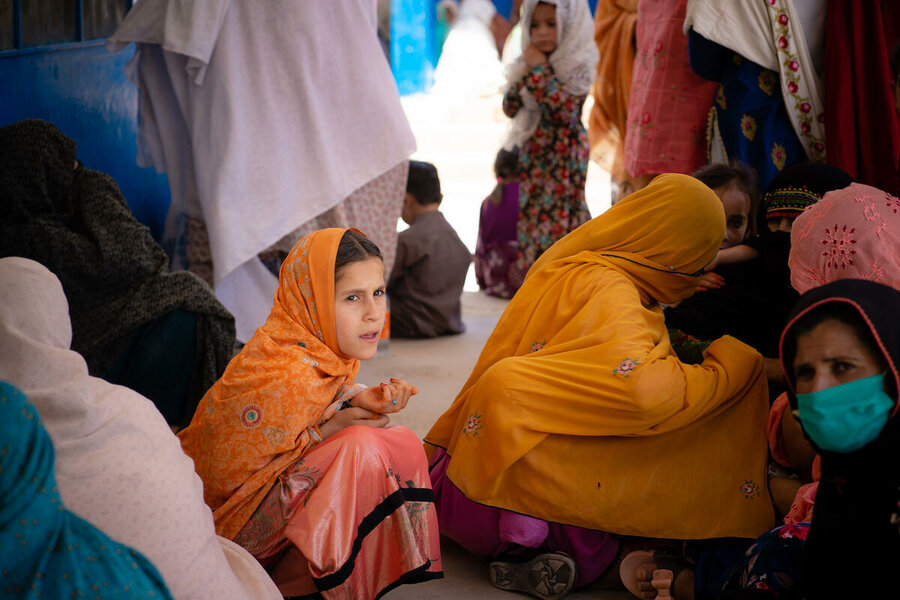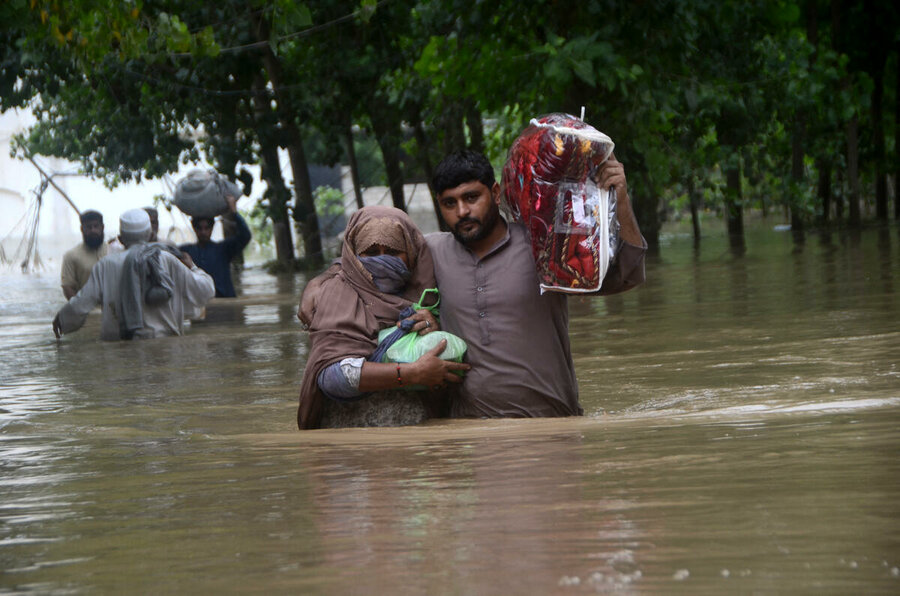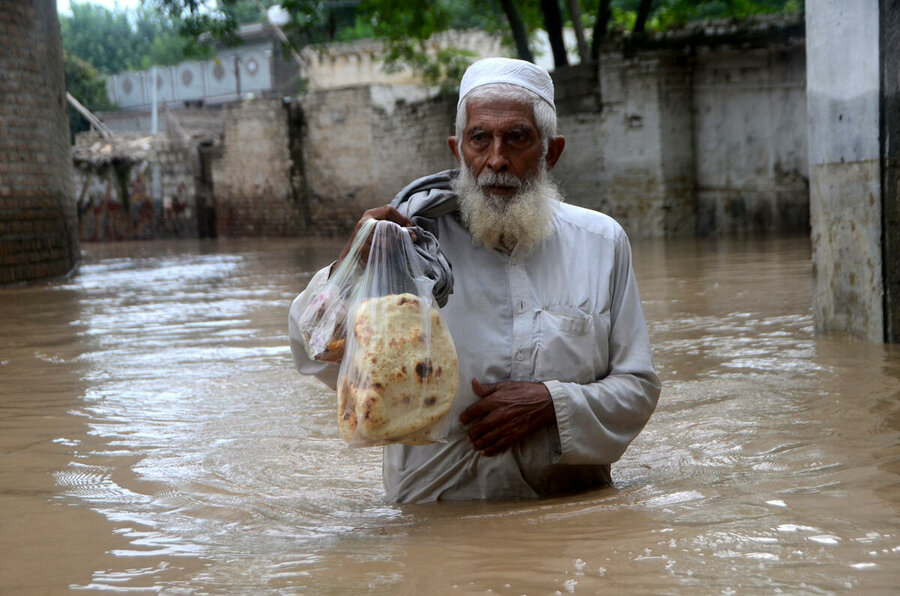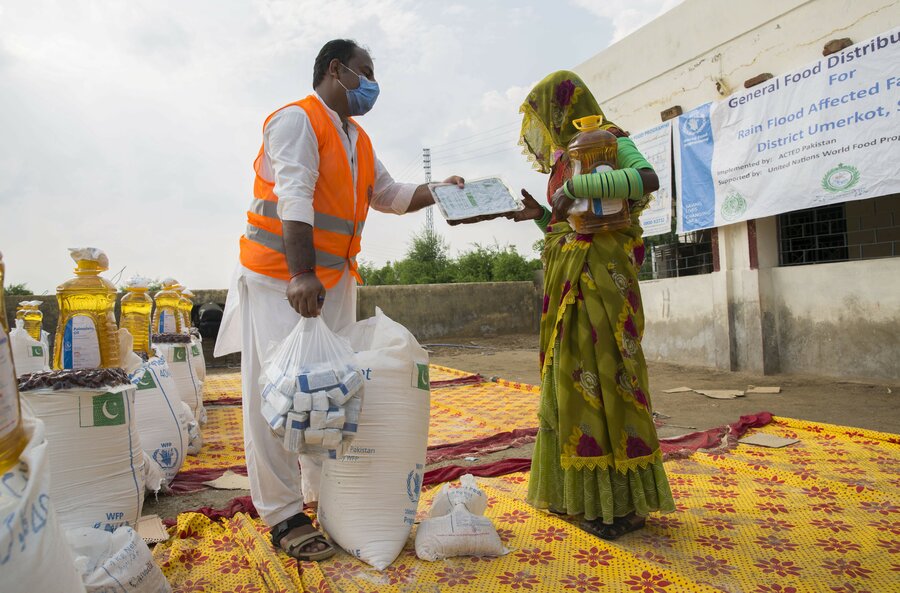
The World Food Programme (WFP) is rapidly expanding its food assistance support in Pakistan as the Government takes stock of floods which have killed nearly 1,000 people and displaced 33 million.
Through its National Disaster Management Authority, the Government - which has declared a national emergency - is leading the response in coordinating assessments and directing humanitarian relief to flood-affected people.
The current floods are happening on a bigger scale than those that devastated Pakistan in 2010. However, this time around "the capacity of the Government is much greater", according to Chris Kaye, WFP's Country Director for Pakistan.

Speaking to the BBC World Service, he said: "That's particularly evident in terms of the systems and the structure that it has to provide for people in these types of situations through its social protections scheme," - namely, the Benazir Income Support Programme.
Over the years, the Government has been able to "refine its own database" and identify the most vulnerable people before floods strike, distributing cash grants to them.

At a time of emergency, such channels provide the "most rapid way of being able to get at least some cash support to people who need it, providing of course that they are able to access it - but there is a huge effort that has been put in place by the Government to enable that," said Kaye.
For their part, UN agencies such as WFP are providing "augmented information, together with the Government, to ensure … we have greater verification of exactly who should avail themselves of that cash" - currently a "one-off payment of 25,000 rupees (US$112)".
"It's not a huge amount of money but it will certainly enable people to buy the critical things that they need."

Meanwhile, the transfer of foods faces severe restrictions. On Thursday a WFP food storage warehouse in Quetta "a platform for getting critically needed food into Afghanistan" became isolated by the floods.
Staff were left with "no access to communications, no ability to be sounding an alarm" - some had their homes washed away, Kaye said, adding that across affected districts there is a "desperate need for tents".
On Tuesday (30 August) the UN will launch a US$161 million UN Flash Appeal to provide critical food and cash assistance to nearly 1 million people in districts in Balochistan, Sindh, Punjab and Khyber Pakhtunkhwa provinces; US$34.28 million is urgently needed to enable the scale-up.






